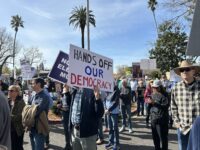 Those who dissent or speak out are often dismissed derisively as members of “a vocal minority.” This happened during the 2013 Measure B election to limit the size of new hotels in Sonoma, even though that measure lost by less than one-percent. Now I’m hearing the same complaint about people in the 1st St. East area north of the Mission who’ve been speaking out at Planning Commission meetings against a hotel proposal in their neighborhood.
Those who dissent or speak out are often dismissed derisively as members of “a vocal minority.” This happened during the 2013 Measure B election to limit the size of new hotels in Sonoma, even though that measure lost by less than one-percent. Now I’m hearing the same complaint about people in the 1st St. East area north of the Mission who’ve been speaking out at Planning Commission meetings against a hotel proposal in their neighborhood.
Carefully examining the phrase “vocal minority” in the context of Sonoma and Sonoma Valley reveals an uncomfortable and disturbing truth: our true “vocal minority” is the wealthiest one-percent; they make the most “noise” not by speaking out but by using money to increase their own wealth, wield influence and promote change.
Now, this is nothing new; the very wealthy have always used their financial strength to accomplish things, and oftentimes those things are positive – but not always. As a microcosm of America, Sonoma reflects many of the current socio-economic trends we see nationally, including many of the same ills, unfortunately. As economic inequality increases, so does the imbalance of power.
Money is powerful, and when used solely for personal gain, often socially corrosive. Vacation rental conversions provide an excellent example of how powerful economic incentives ultimately can erode the integrity of residential neighborhoods and turn them into commercial “strangerhoods” instead. The tension between private and public “rights” is ongoing, fought out in courtrooms, boardrooms, city council chambers and state legislatures. “Freedom vs. regulation” conflicts fuel constant debate politically and socially in America, and have done so for hundreds of years. At the moment, the regulation side is mostly in retreat in the face of a relentless assault by monied interests. The effects of Citizen’s United on campaign finance is currently one of the most dramatic examples, nationally.
Locally, the wealthiest among us are using their money in various ways, some good, some not so much. Not surprisingly, some are investing money simply to make even more money; in this sense the Sonoma wine country functions as a virtual ATM for wealthy speculators. Luxury hotels, an endless number of new premium wines and wineries, wedding event centers, hillside mini-mansion construction and conversion of single-family housing to vacation rentals are all examples. Thus it is the financial speculators within the wealthiest of the one-percent attract aspiring one-percenters, at a handsome profit, of course.
Other members of Sonoma’s wealthiest use their money to exert influence. They make generous contributions to our area’s non-profits and take leadership seats on non-profit boards of directors. For these non-profits, such largesse and participation is often welcome; scarce government grants and the ninety-nine percent who can no longer afford to donate as much money, negatively impacts fund-raising. But donations made by the wealthy can also come at the cost of cultural bias; some non-profits are more attractive to the wealthy than others, particularly when there is a new building to fund or highly visible program upon which to bestow dollars.
The very wealthiest in our area are just a handful – in all respects a tiny minority – yet their impact is major. Most are content to let money do their talking for them. While their voices may be soft, Sonoma’s wealthiest are the true “vocal” minority; their wealth speaks louder than words.





Be First to Comment